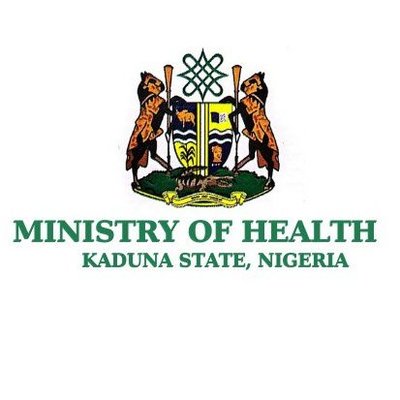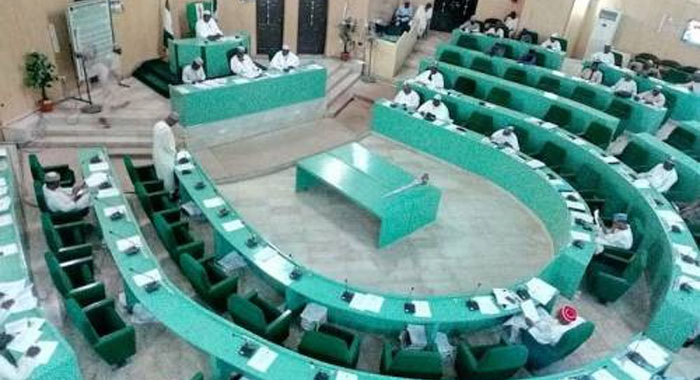Health
EkoUNIMED sensitises public on multidisciplinary approach to breast cancer management
By Omolola Dede Adeyanju
The Eko University of Medicine and Health Sciences (EkoUNIMED) in a bid to fight breast cancer through sensitization of the public has held its first lecture series for 2024 themed, ‘Multidisciplinary approach to breast cancer management.’ The event was held at the Lagos state school of nursing auditorium yesterday.
According to the Chairman, medical education committee and Dean FBCS, EkoUNIMED, Professor Wale Ajala, parts of the reasons for breast cancer development are; not having many children, people marrying late and their menstruation being short spanned, the use of contraceptives, exposure to radiology or radiation, as well as the things people eat, to name a few.
He affirmed that breast cancer is multi-disciplinary in the sense that it involves not only the patient but his/her family, friends, doctors and everyone has something to do about it. He said, “We are sensitising the public, creating awareness so that people can learn to examine themselves. That’s why we are not limiting the lecture to our students alone but everybody. This is our CSR to the public, educating them on breast cancer.”
Professor Ajala noted that one of the recent treatments for cancer is the personalised treatment which only the patient is expected to carry out. “There are also open therapy and several other therapies,” he added.
According to the Consultant Pathologist, Federal Medical Center, Ebute Meta, Dr O. Iyapo, the lecture series is a platform for knowledge. He confirmed the fact that women are the most affected gender for breast cancer and expressed that men also contract breast cancer. He stated that it is more chronic for men when diagnosed.
Dr Iyapo explained that Nigerians who have migrated to other countries to practice nursing or as doctors do not go for further training before they practice, “The expertise of Nigerian doctors have never been questioned in any case, if they are not good, they won’t be sought after. Aside from India and Pakistan, Nigeria has the highest experts of medical professionals abroad.”
“Formally, the conventional practice for breast cancer treatment was that you either remove the breasts, give chemotherapy, but now we have improved diagnosis with improved testing variables to stratify patients and give them the best treatment modality.
“There are some patients that, based on the class of cancer they have they may not need chemotherapy, it may just be endocrine therapy, you can also understand what is needed for a patient rather than waste money or embark on treatment that would not be effective based on the stratification of the patient.”
Dr Iyapo explained that breast cancer is not a death sentence and unlike those days, now, there is no type of breast cancer that does not have one form of treatment or the other.
“However, this depends on the level, Prevention is better than cure. To prevent and post prevention is key so people should have good health seeking behavior because apart from the fact that prevention is better than cure, prevention is way cheaper than cure.
“Do not wait until you see a lump in your breast before you go for a medical check up. Self-examination is something every woman should be able to do and periodically go to the hospital for clinical breast examination. When you see anything different in your breast, seek medical attention rather than waiting till when it is advanced.
“I implore all women to have good health seeking behavior, seek medical attention whenever you observe something different or unusual in your breast because it is best to discover cancer at it early stage, at that stage you can just remove the lump or the swelling and the entire breast remains safe rather than wait till when it is advanced, at such time it would have reached the lungs or liver and destroyed a lot of things in the organs,” he submitted.
A 400 level medical student and participant at the lecture series Ayobajo Oluwaferanmi expressed her take home from the event, saying, “The lecture was really educative. We learnt about self examination and how to overcome fear as a patient, we also learnt about several types of breast cancer. My take home is to seek attention at the earliest stage of breast cancer. Overall the lecture was very informative.”
Health
FG bans use of foreign syringes, needles in tertiary hospitals

The Federal Government has mandated all Chief Medical Directors (CMDs) and Medical Directors (MDs) of Federal Tertiary Hospitals to procure needles and syringes solely from NAFDAC-approved local manufacturers.
The new directive is contained in a circular addressed to all CMDs and MDs signed by the Minister of State for Health, Dr Tunji Alausa, on Friday.
The minister said that the directive was aimed at boosting domestic production and shielding the country’s manufacturing sector from the influx of foreign goods.
The circular also mandated NAFDAC to stop issuing licences for the importation of foreign manufactured needles and syringes.
Alausa said the health sector had dentified local pharmaceutical industries that produce needles and syringes that were in serious trouble because of the practice.
He also said that out of the nine local pharmaceutical companies that produced needles and syringes eight years ago, six have folded up due to the dumping of largely substandard goods into the market.
“Mr President has directed that this must stop. We all agreed to take the necessary steps to immediately remedy this sad situation.
“Pursuant to this, NAFDAC has been mandated to stop issuing licences for the importation of foreign manufactured needles and syringes.
“It is also to de-list companies involved in the importation of these products going forward,” he said.
Alausa said ”all our tertiary hospitals are hereby directed to procure needles and syringes for your hospital needs from only the NAFDAC-approved local manufacturers listed below are listed either directly or through any of their vendors.
“EL-Salmat Pharmaceuticals Company Ltd Block, Brand Name: Salmaject, HMA Medical Ltd., with brand Name: Deleject and Afrimedical Manufacturing and Supplies Ltd.”
He also listed some of the distributors of the listed companies in some states of the Federation for easy access to assist in making the procurement process easier in the various institutions.
Health
KDSG trains 180 Red Cross volunteers on Lassa Fever intervention


The Kaduna State Ministry of Health has begun a three-day training for 180 Red Cross volunteers on Lassa fever intervention.
The training, which is facilitated by the ministry and funded by the Red Cross, is meant to equip the volunteers selected from 5 LGAs in the state with necessary skills.
The volunteers were drawn from Zaria, Igabi, Kaduna South, Kaduna North and Chikun Divisions.
The State Epidemiologist, Dr Jeremiah Dikwu, said the volunteers were trained with the knowledge needed to massively intervene during cases of Lassa fever in the state.
He said that the intervention would include Risk Communication and Active Case Search, Psychological First Aid, Rodent Control and Hygiene Promotion for the next 3 months.
Dikwu said the training started with 30 volunteers on surveillance and would end with the training of 150 volunteers on Risk Communication and Community Engagement .
According to him, Lassa fever is a viral hemorrhagic fever transmitted by rats.
He added that Lassa fever has been known since the 1950s, but the virus was not identified until 1969, when two missionary nurses died from it in the town of Lassa in Nigeria.
Dikwu added that Lassa fever was caused by a single stranded RNA virus and disseminated systemic primary viral infection.
“The main feature of fatal illness is impaired or delayed cellular immunity leading to fulminant viraemia,” he said
The epidemiologist said that Lassa fever presented symptoms and signs indistinguishable from those of febrile illnesses such as malaria and other viral hemorrhagic fevers such as Ebola.
“It is difficult to diagnose clinically but should be suspected in patients with fever (e”38°C) not responding adequately to antimalarial and antibiotic drugs.
“The most useful clinical predictors of Lassa fever are fever, pharyngitis, retrosternal pain, and proteinuria for diagnosis; and fever, sore throat, and vomiting for outcome,” Dikwu said.
He said that Ribavirin and general support were needed.
“Ribavirin is almost twice as effective when given intravenously as when taken orally, and if given within six days of the start of illness it may reduce deaths by 90 percent.
“Dehydration, oedema, hypotension, and poor renal function are common; fluid replacement or the use of blood transfusion requires careful monitoring,” he said.
Dikwu said the volunteers would be carrying out Risk communication and Community engagement, Active Case Search, Psychological First Aid, Rodent Control and Hygiene Promotion
Health
Assembly passes Kano Pre-Marital Health Screening Bill


Kano State House of Assembly has passed a bill for a law to compel intending couples to undergo HIV, hepatitis and sickle cell anaemia screening before marriage.
The passage followed deliberations in the Committee of the Whole House during plenary session,
presided over by the Speaker, Ismail Falgore on Monday in Kano.
After deliberations, the lawmakers approved the 3rd reading of the bill, read by the Deputy Clerk, Alhaji Nasiru Magaji.
Shortly after passage of the bill, the Majority Leader of the house, Lawan Hussein (NNPP-Dala), stated that “any person
intending to marry shall first submit self for medical examinations.”
He said the bill was considered and passed after the 3rd reading, following various legislative processes.
The leader further said that the bill was passed because the state had been battling with different health issues, including
HIV because people go into marriages without medical screening.
He said that the bill, if signed into law, would save many lives and curb the spread of life-threatening diseases.
“The bill will safeguard the health of citizens by institutionalising pre-marital testing to check the spread of diseases
like hepatitis, HIV and sickle cell anaemia,” he added.
-
capital market2 years ago
Rt.briscoe, FBNH, Others halts negative performance of stock market
-
Finance3 months ago
Court orders Sen. Victor Umeh to repay N136m bank debt to AMCON
-



 Abuja Update2 months ago
Abuja Update2 months agoUNDP, FG partnership needed to achieve inclusion, equity- Minister
-
Abuja Update1 month ago
Banks drive stock market performance with N147bn gain
-



 Business1 week ago
Business1 week agoTingo Group unveils Tingo Electric, Tingo Cola drink at Lagos launch
-



 Health2 weeks ago
Health2 weeks agoCapacity training will reduce migration of health workers- NPHCDA
-
News4 months ago
Oil thieves sponsoring malicious media campaign against Navy – Spokesman
-



 Infotech1 month ago
Infotech1 month agoWorld Backup Day: NITDA urges Nigerians to ensure backup of data




